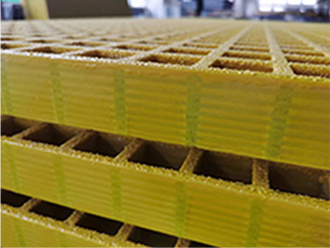loading...
- No. 9, Xingyuan South Street, Dongwaihuan Road, Zaoqiang County, Hengshui, Hebei, China
- admin@zjcomposites.com
- +86 15097380338
- Welcome to visit our website!
Innovative Approaches to Utilizing UV Technology for Effective Water Purification Solutions
The Importance of UV Water Treatment
Water is an essential resource for life, and ensuring its purity is crucial for public health and environmental sustainability. With the growing concerns about waterborne diseases and environmental pollution, innovative technologies have emerged to enhance water treatment processes. One such method that has gained significant attention is ultraviolet (UV) water treatment. This article explores the principles, benefits, applications, and future prospects of UV water treatment.
Principles of UV Water Treatment
UV water treatment is a disinfection technology that utilizes ultraviolet light, typically at a wavelength of 254 nanometers, to eliminate pathogens in water. The underlying principle lies in the ability of UV light to disrupt the DNA and RNA of microorganisms, rendering them incapable of reproduction or infection. Unlike traditional chemical treatment methods, UV disinfection does not involve the addition of any harmful substances to the water. Instead, it relies on a physical process that is both effective and environmentally friendly.
Benefits of UV Water Treatment
One of the most significant benefits of UV water treatment is its effectiveness in eliminating a wide range of pathogens, including bacteria, viruses, and protozoa. Studies have shown that UV treatment can reduce the number of microorganisms in water by up to 99.9%, making it a powerful tool in safeguarding public health. Additionally, UV treatment is fast-acting; it usually takes only a few seconds for the water to be disinfected as it passes through the UV system.
Another advantage is that UV water treatment does not produce harmful by-products, unlike chlorine and other chemical disinfectants. While chlorination can lead to the formation of potentially hazardous compounds, such as trihalomethanes, UV treatment avoids such issues altogether. Moreover, it is a chemical-free approach, making it ideal for applications where the taste and smell of water are critical, such as in drinking water supplies.
UV water treatment systems are also highly efficient and cost-effective. They require minimal energy to operate, especially when compared to some other water treatment technologies. The systems themselves are designed for durability and low maintenance, further reducing operational costs. As a result, UV disinfection has become popular in various settings, including municipal water treatment plants, industrial facilities, and even residential applications.
uv water treatment

Applications of UV Water Treatment
The applications of UV water treatment are vast and varied. Municipalities often use UV systems to treat drinking water before it is distributed to homes and businesses. This method is particularly advantageous in areas prone to waterborne diseases, as it significantly reduces the risk of outbreaks and ensures a safer water supply.
In addition to drinking water treatment, UV disinfection is also widely used in wastewater treatment processes. It not only disinfects treated wastewater but also prepares it for potential reuse in irrigation or industrial processes. In aquaculture, UV treatment helps maintain the health of fish populations by controlling harmful pathogens in the water.
Household appliances, such as under-sink UV purifiers, allow individuals to ensure their drinking water is free from contaminants. This accessibility empowers consumers to take control of their water quality, further promoting public health.
Future Prospects
As global challenges concerning water quality and scarcity intensify, the future of UV water treatment appears promising. Advances in UV technology, such as the development of improved UV lamps and reactor designs, are enhancing the efficiency and efficacy of these systems. Furthermore, the integration of UV treatment with other technologies, such as membrane filtration and advanced oxidation processes, can offer comprehensive solutions for complex water treatment challenges.
In conclusion, UV water treatment represents a vital advancement in the quest for clean and safe water. Its effectiveness, environmental friendliness, and versatility make it an essential tool in both public health and environmental protection. As we move forward, continued research and innovation will likely enhance its applications, ensuring that UV disinfection plays a crucial role in the future of water treatment.
-
The Rise of FRP Profiles: Strong, Lightweight, and Built to LastNewsJul.14,2025
-
SMC Panel Tanks: A Modern Water Storage Solution for All EnvironmentsNewsJul.14,2025
-
GRP Grating: A Modern Solution for Safe and Durable Access SystemsNewsJul.14,2025
-
Galvanized Steel Water Tanks: Durable, Reliable, and Ready for UseNewsJul.14,2025
-
FRP Mini Mesh Grating: The Safer, Smarter Flooring SolutionNewsJul.14,2025
-
Exploring FRP Vessels: Durable Solutions for Modern Fluid HandlingNewsJul.14,2025
-
GRP Structures: The Future of Lightweight, High-Performance EngineeringNewsJun.20,2025
